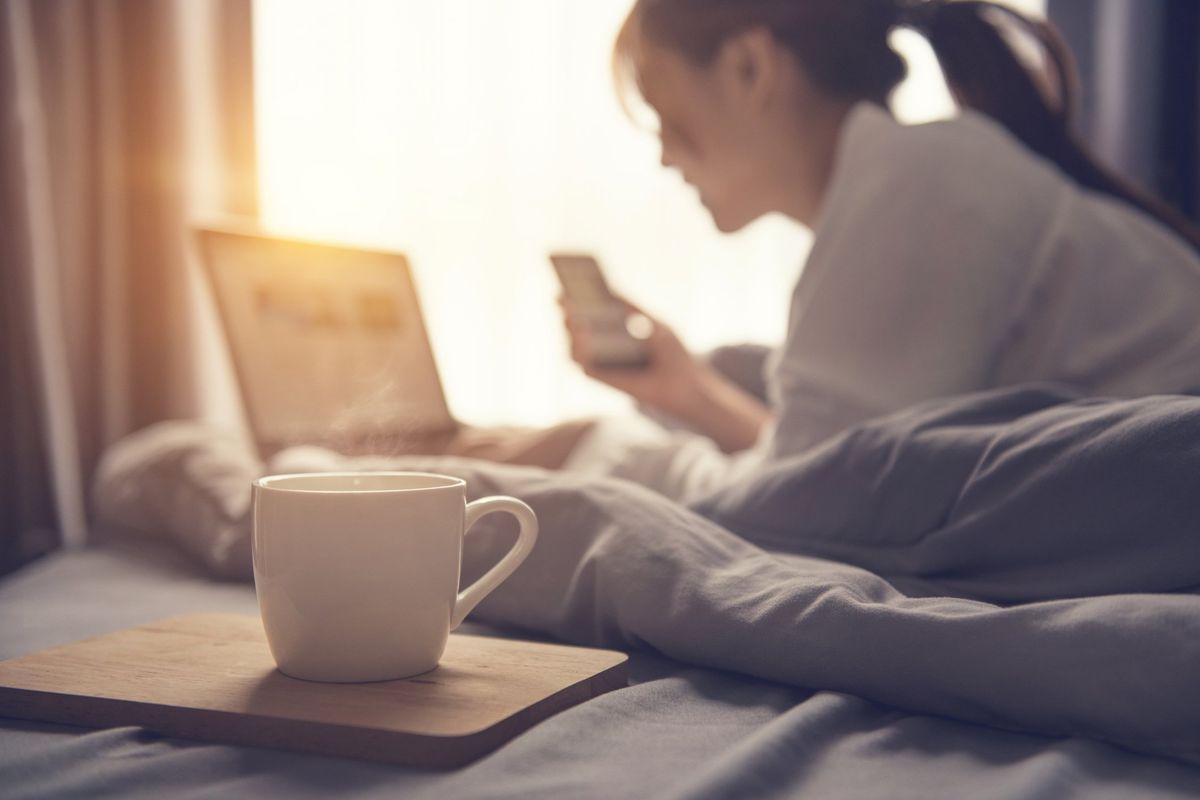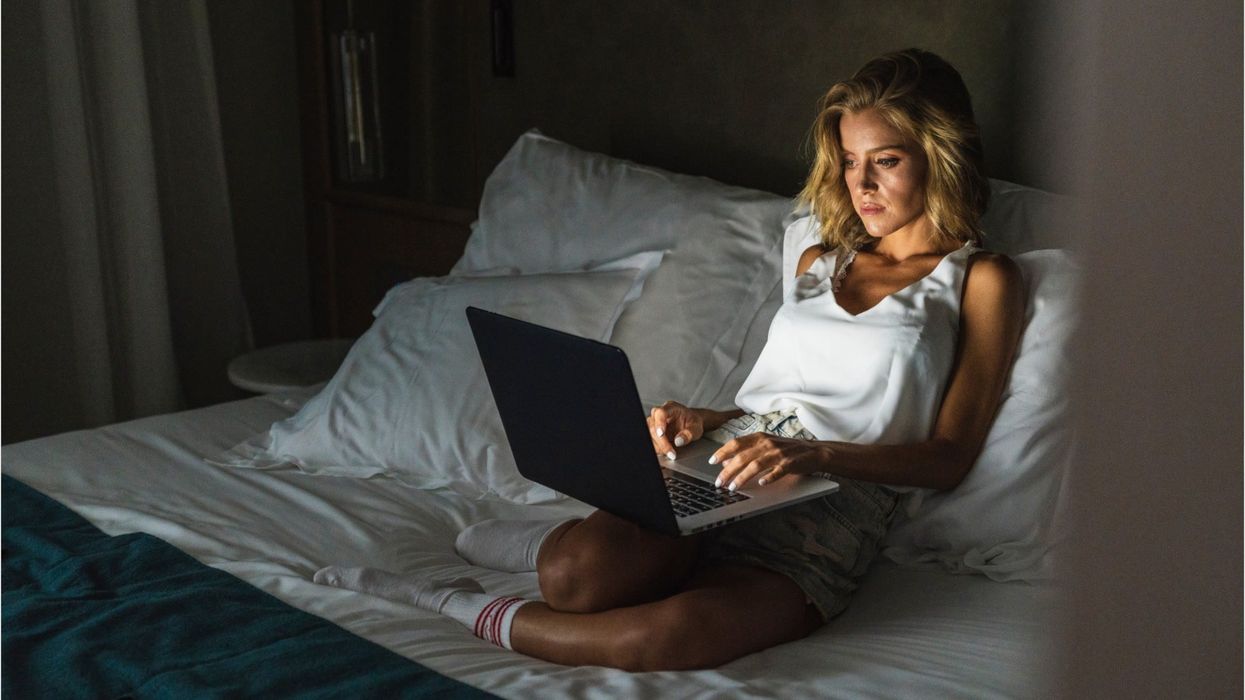As the chilly mornings are upon us, it can sometimes be hard to resist opting to work on your laptop from your bed - however, it's not the best move for your health in the long run.
Post-Covid, a lot of UK businesses still allow their employees flexibility on where they work, with 30 per cent working hybrid and 37 per cent fully remote.
But not all of us have room for a designated home office space so the bedroom has become our makeshift office, causing the lines between work and relaxation to be blurred.
Despite our bed being comfy and warm, working from it can result in a range of physical and psychological health issues.
For starters, this can affect your sleep since if you're spending all day in your bed working, it can be more difficult to switch off and relax at night as you associate your bed with being alert and awake for work.
In fact, over a fifth (21 per cent) of Brits work from their bedrooms, often getting just 2-3 hours of sleep on average, according to a recent Get Laid Beds survey.

Charli Davies, Founder and CEO of Snuzzze echoed this point and also noted how working from bed can cause strain on other parts of the body.
“While working in bed might seem like a good idea occasionally, it can negatively affect the amount and quality of your sleep over time," she said.
“Poor sleep quality impacts your productivity and efficiency, making it harder to make decisions, stay focused, concentrate, and regulate your mood—all of which makes working harder.”
“Also, your neck, back, hips and more are all strained when you’re on a soft surface that encourages you to slump or sprawl.”
Davies added: “Working on or in your bed is terrible for posture and can cause back and neck pain, contributing to issues like dowager's hump. Wrist pain can be another problem since it's hard to maintain an ergonomically correct position in bed due to the softness of the bedding and mattress.”
For those who want to work from their bed occasionally, Davies has revealed some tips on how to prevent these health problems from arising.
Disconnect from work when you clock off
“For optimal sleep, our bedrooms should be reserved for sleep and intimacy only. If you absolutely must work in your bedroom, consider using a desk that can be closed or screened off," Charli said.
“One of the keys to good sleep is how we think, so once you're done with work, put everything away to avoid triggering work-related thoughts when you see your workspace that can impact getting to or staying asleep.”
Working on the desk instead of the bed
Charli began: “We often think that bringing our laptops into bed at the start or end of the day boosts our productivity, but this habit can actually harm our long-term productivity.
“It disrupts our sleep and causes us to lose track of time, leading to late nights and less rest.”
She concluded: “Having a desk in the bedroom or keeping your laptop on the nightstand can create an unintentional association between your bedroom and work, rather than sleep. This can affect your ability to get a good night's rest without you even realising it.”
Elsewhere, medical experts have explained why we wake up in the middle of the night, while a worker was left in tears after claiming she was denied a job for being Gen Z.
How to join the indy100's free WhatsApp channel
Sign up to our free indy100 weekly newsletter
Have your say in our news democracy. Click the upvote icon at the top of the page to help raise this article through the indy100 rankings.














